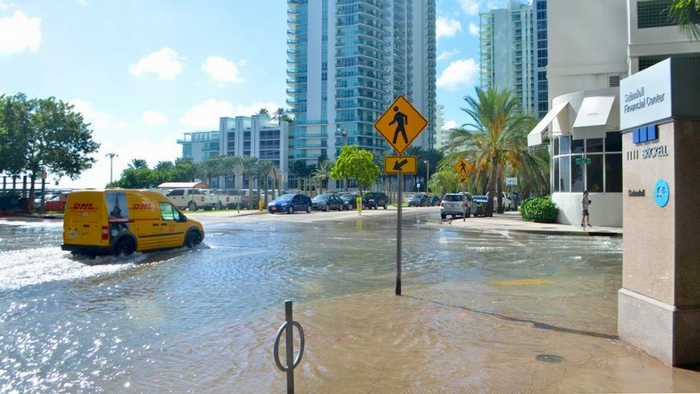MIAMI—A new study from researchers at the University of Miami (UM) Rosenstiel School of Marine, Atmospheric, and Earth Science found that Miami’s history of environmental injustice was the key to understanding why different groups were often talking at cross-purposes, leading to misunderstandings and disagreements about climate change and what they believe should be done about it.

Credit: B137, CC BY-SA
MIAMI—A new study from researchers at the University of Miami (UM) Rosenstiel School of Marine, Atmospheric, and Earth Science found that Miami’s history of environmental injustice was the key to understanding why different groups were often talking at cross-purposes, leading to misunderstandings and disagreements about climate change and what they believe should be done about it.
“These findings are of particular interest as local governments begin to respond to climate pressures,” said Rosalind Donald, who conducted the study while a postdoctoral associate in the UM Rosenstiel School’s Department of Environmental Science and Policy. “While climate change is often spoken of in scientific terms in the policy world, the people in our study were engaging with its wider societal context.”
By weaving together information from interviews, archival documents — from planning documents to personal papers—and analysis of policy documents, Donald and team were able to analyze Miami’s climate debate and the histories that inform it.
The city’s history of growth through real estate development and racial segregation — from the dispossession of the Seminole and Miccosukee tribes to the destruction of Miami’s then-largest Black community, Overtown, to make way for the I-95 Expressway — has created a fractured climate debate in which people experience different climate impacts.
Shorefront areas are likely to be populated by a wealthier demographic, for example, so they are more likely to experience coastal flooding due to sea-level rise and connect it with climate change. Inland, many Black communities are located on higher ground due to segregation and displacement. These areas are under increasing gentrification pressure, potentially due in part to the fact that they are less vulnerable to sea-level rise – a theory called climate gentrification. As a result, some residents were more likely to connect climate change with gentrification.
Their research found that different opinions about climate change aren’t just about political identity but are rooted in the community histories such as experiences of privilege or dispossession.
“Research and the media often put differences of opinion about climate change to political differences,” said Donald. “It’s not just about deniers and believers, our research shows how climate change is personal to all of us.”
In some communities, this meant that science-based climate communication could even be alienating —while talking about climate change in the context of gentrification and other pressing concerns was more concrete. In another community — a wealthy Miami Beach neighborhood, residents were well versed in climate science but still rejected measures to respond to sea level rise when they feared it would interfere with their property values and quality of life.
“It has divided the city into those who have benefited from this growth and those whose communities have subsidized the health, wealth, and environmental quality of others without enjoying the fruits of growth,” said Donald.
The study, titled “The role of local narratives in emerging climate governance” was published July 12, 2022 in the journal Environmental Research: Climate. The study’s authors include: Rosalind Donald, Camila Young, and Katharine J. Mach. Funding was provided by the University of Miami Rosenstiel School of Marine, and Atmospheric Science.
Journal
Environmental Research Climate
DOI
10.1088/2752-5295
Subject of Research
People
Article Title
The role of local narratives in emerging climate governance
Article Publication Date
12-Jul-2022
COI Statement
none




